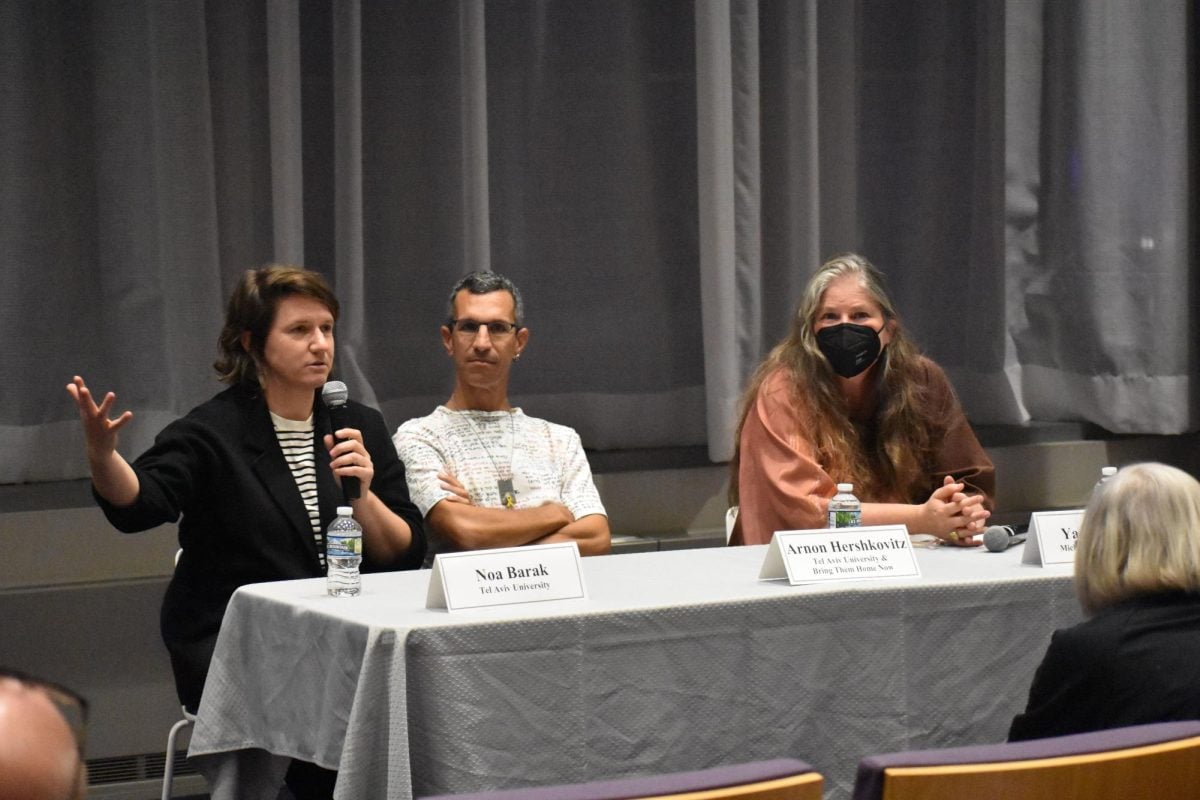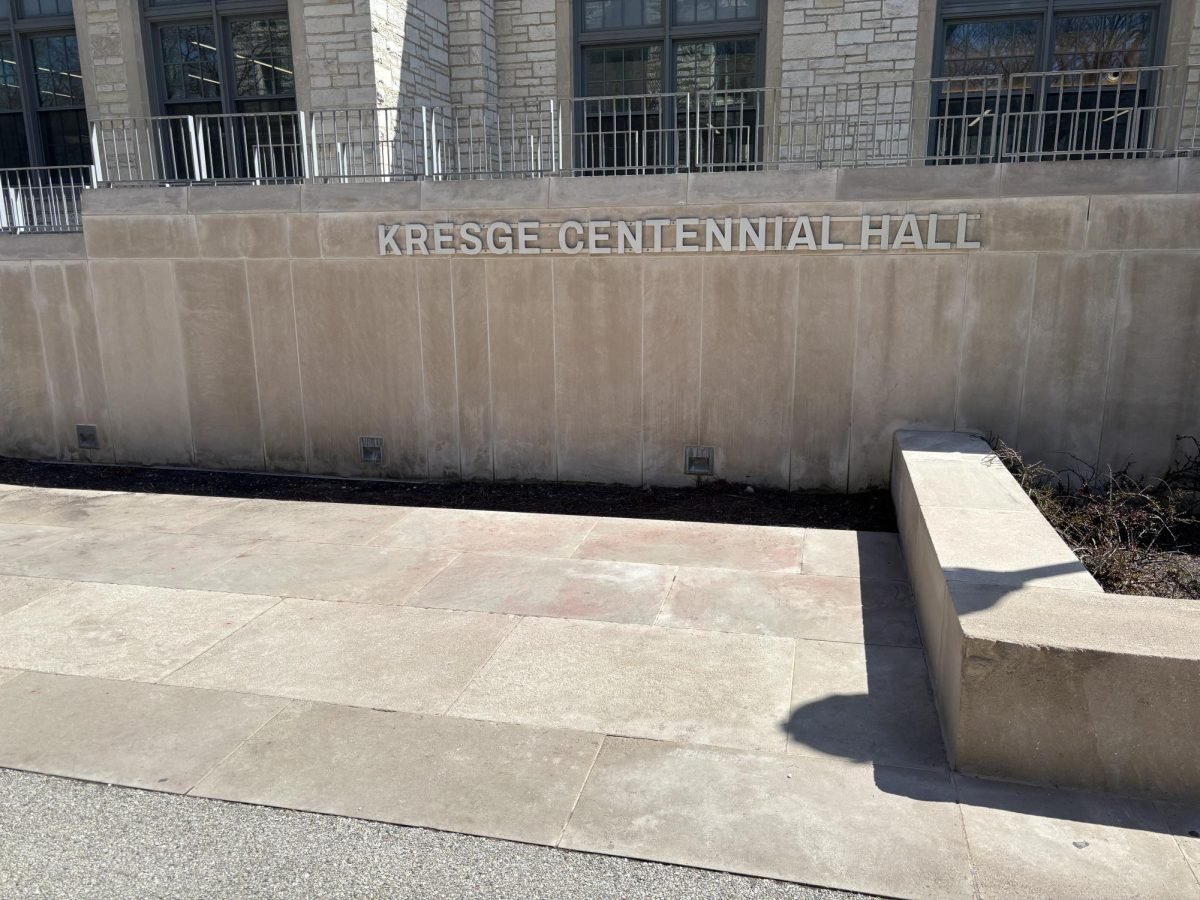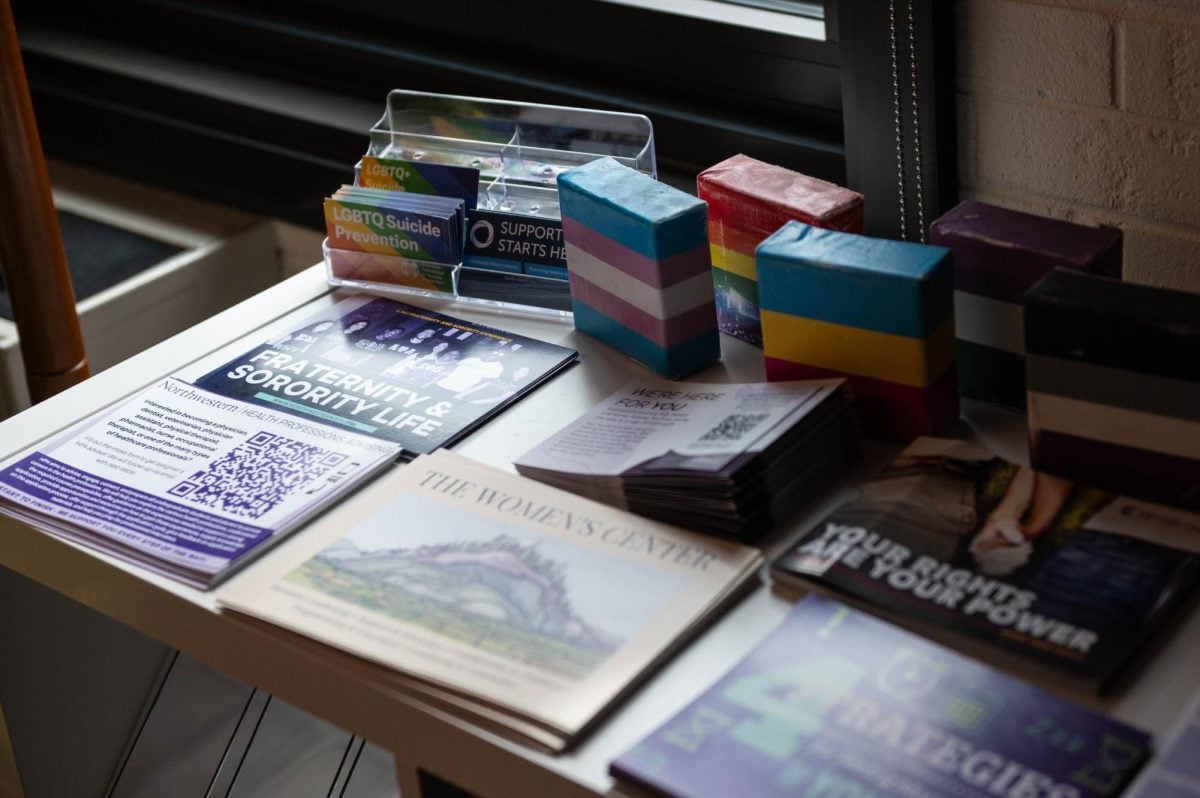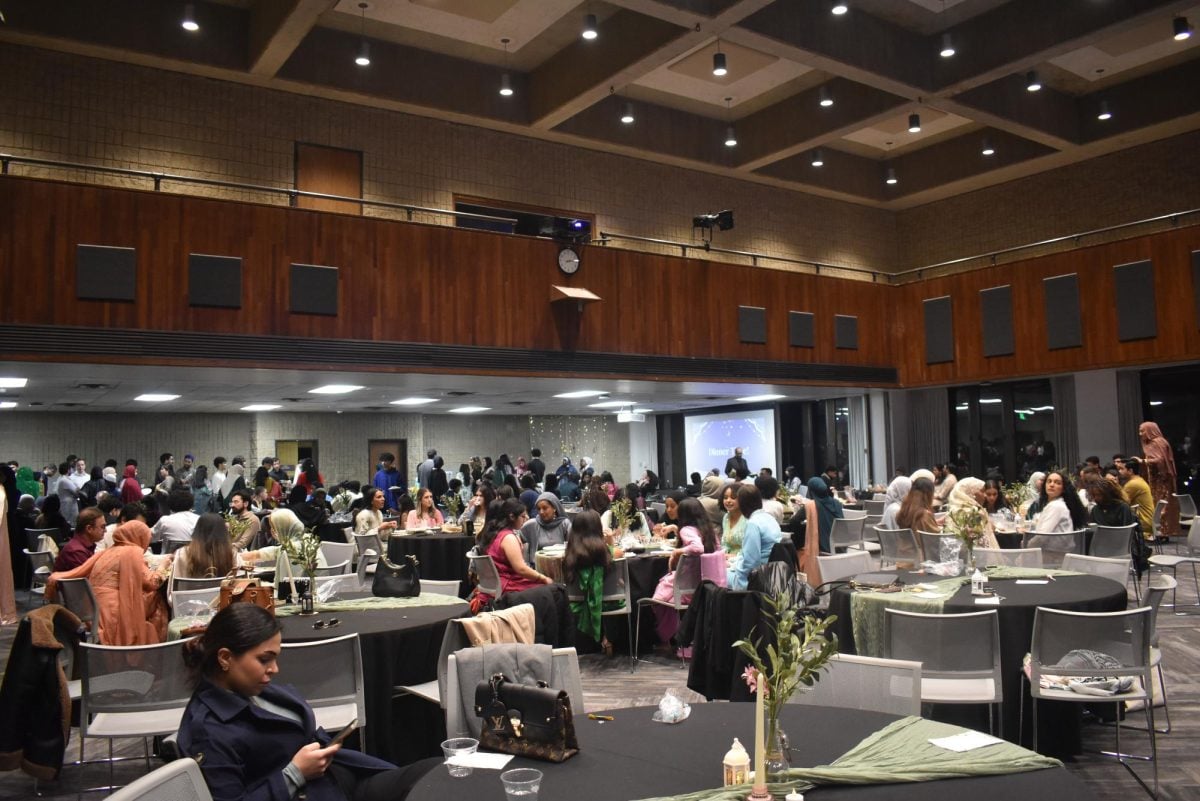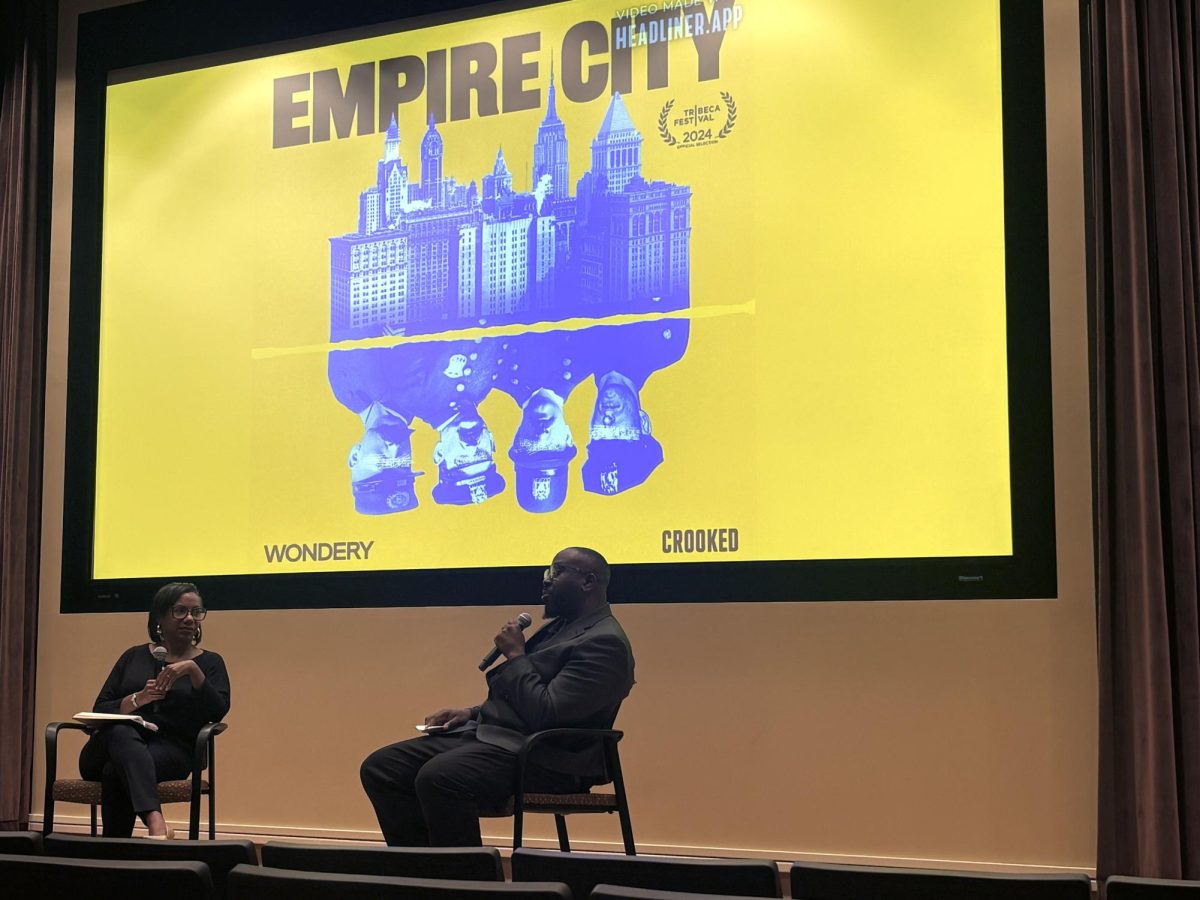About 80 people attended a panel at the Segal Visitors Center on Wednesday in remembrance of the one-year anniversary of Hamas’ attack on Israel.
The panel, hosted by the Crown Family Center for Jewish and Israel Studies, was titled “October 7 One Year Later: Currents in Israeli Society.” According to the center’s director, David Shyovitz, it aimed to provide historical, political and societal contextualization to inspire new perspectives during a difficult time.
Each panelist shared their perspective on the impact of the Hamas-led attack and gave insights into current Israeli society.
Hamas’ Oct. 7, 2023, attack on Israel killed 1,200 people — including 46 Americans, according to Israeli officials. According to Palestinian officials, Israel’s military campaign in Gaza has killed more than 41,000 Palestinians.
The first speaker, Arnon Hershkovitz, an associate professor at Tel Aviv University, said after Oct. 7 he began volunteering for Bring Them Home Now, an organization dedicated to helping hostages and their families after over 250 hostages were taken during the attack.
Hershkovitz said the Israeli government failed to help right after the attack. It took the government hours, and in some cases days, to get to the border and help the Israeli citizens in need, he said.
“Citizens filled up the vacuum that the government left, and these are ordinary citizens, but for any person who hears their stories, they are extraordinary,” Hershkovitz said.
According to Hershkovitz, thousands of volunteers banded together, providing transportation, food, shelter and childcare to the evacuees of the attacked villages.
Today, there are still tens of thousands of displaced people being helped by their community, Hershkovitz added.
“I end with the hope that we will become a better society, that we will have a better future and, most importantly, that all the hostages will be back soon,” Hershkovitz said.
Panelist Noa Barak, a Ph.D. candidate at Tel Aviv University, spoke next about “The Civil Archive of the October 7th War,” which she co-founded. The archive is an extensive documentation by Israeli citizens that focuses on the civic aspects of the war within its broader historical context.
Barak spoke about the Israeli government’s work to create a new archive on Oct. 7 and the events that followed. In her presentation, she said social perspectives are often lost under the archival dominance of the states.
“The goal of the Civil Archive is to create and preserve a comprehensive repository of historical records that reflect the experiences and voices of diverse social groups in Israel,” Barak said. “At the center of this crisis is a bitter struggle over the historical truth of Oct. 7: what exactly happened and why and who is to blame.”
Barak said she is interested in how events during and after the Oct. 7 attack are documented and by whom. She emphasized the importance of recording varied perspectives of Oct. 7 outside of government control to understand its impact on society.
Yael Aronoff, the director of the Michael and Elaine Serling Institute for Jewish Studies and Modern Israel at Michigan State University, spoke about Israeli Prime Minister Benjamin Netanyahu and her belief that he failed Israeli society.
“It also represented a complete failure of the government to prevent (the Hamas attack) from happening,” Arnoff said. “Why were there so few people at the Gaza border?”
Arnoff said Netanyahu presented himself as “Mr. Security” but presided over the biggest security failure in Israeli history.
According to Arnoff, many Israelis believe Netanyahu should resign immediately while others believe he should resign when the war ends.
The final speaker, Amir Reicher spoke to the audience on Zoom from Israel, citing his inability to leave the country. Reicher said he is a cultural anthropologist specializing in the West Bank Settlements project. For his research, he moved to the West Bank and lived in an outpost settlement for almost two years.
Reicher said the atmosphere of the outposts has changed since the Oct. 7 attack. He described men in the outposts who now dress in full military gear and remain armed due to a fear for their lives that has developed since the attack.
Reicher said that for many community members in the West Bank settlements, Oct. 7 has transformed ideological differences into life-and-death issues in the community. They are governed by fear instead of ideals, he said.
Email: caylalabgold-carroll2028@u.northwestern.edu
X: @caylalc
Related Stories:
— JVP hosts Tashlich to honor lives lost in Palestine and Israel
